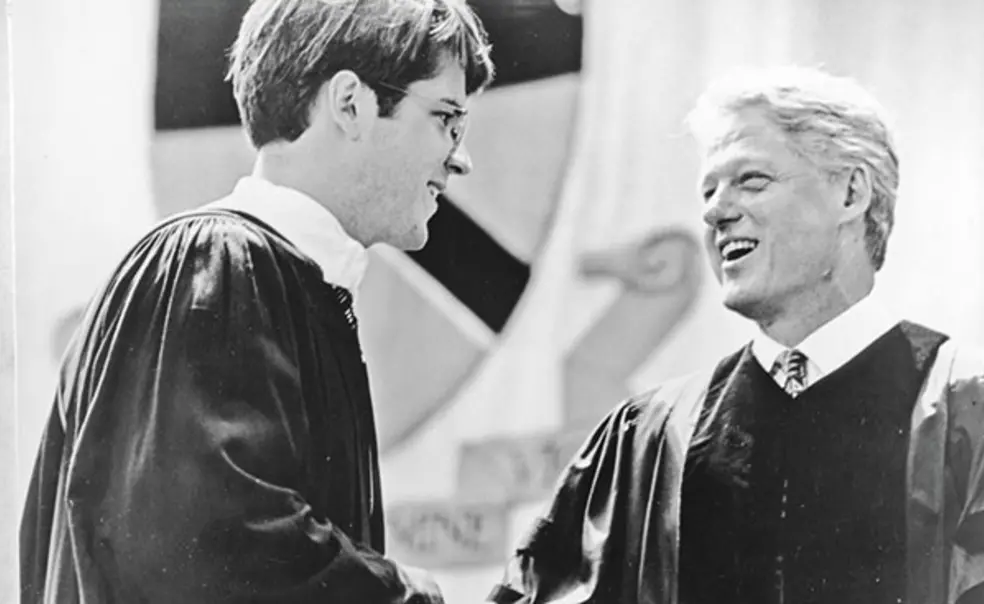When President Bill Clinton marked Princeton’s 250th anniversary by speaking at Commencement and accepting an honorary degree, he traveled in what Town Topics called a “bubble of security.” On June 4, 1996, road closures, flight restrictions, police cordons, metal detectors, and a 30-vehicle motorcade, including “at least one Chevy Suburban carrying men armed with assault rifles,” were the order of the day. Even FitzRandolph Gate and adjacent fences were lined with sheeting to thwart unfriendly eyes, together with the public’s.
Ticket holders had a better view, but only after being cleared by Secret Service agents. “We envision lines upon lines of people waiting to be cleared,” noted one Commencement organizer, whose headaches included the “impossible logistics of how to handle confiscating umbrellas as people enter and getting them back to their rightful owner afterwards” in the event of rain. The Princeton Weekly Bulletin reported that some faculty and graduating students, “stymied by temporary fences and uniformed guards, had to back-track, grumbling and consulting their watches.”
Despite such annoyances, Clinton was warmly cheered when the time came for him to deliver a 31-minute address on expanding access to higher education, exercising a speaking privilege normally reserved to Princeton’s president.
Clinton’s visit demonstrated how much things had changed since another June day when another president, known to his classmates as Tommy, returned to Princeton to celebrate his 35th reunion. Declining any form of official recognition, Woodrow Wilson 1879 arrived with a handful of companions and “several Secret Service men,” walked from the station to his class headquarters in 1879 Hall, and marched with his class in the P-rade. “Nation’s Chief Executive ... Is Jostled About by Crowd,” proclaimed one headline; “President Is Just ‘Tommy’ for a Day,” declared another.
It is hard to imagine that any latter-day incumbent of the White House would not be envious.
John S. Weeren is founding director of Princeton Writes and a former assistant University archivist.












No responses yet